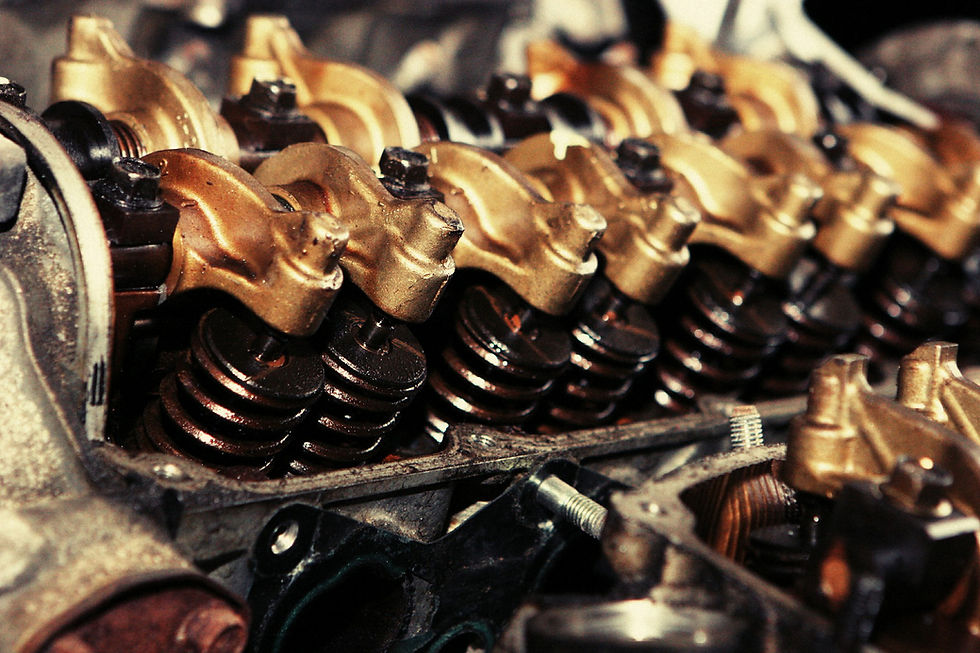How I Uncovered the Best Auto Spare Parts Deals in Ghana: My Tips and Tricks for Navigating the Market
- Autolast Ghana

- Jun 21, 2025
- 4 min read
Navigating the world of auto spare parts in Ghana can feel overwhelming. Whether you're looking for a replacement part for a beloved old car or need to service a newer model, the options, dealers, and prices can leave anyone confused. In my quest to find the best car parts in the Ghana market, I discovered valuable tips and tricks that can save you time and money. In this post, we'll explore how to successfully maneuver through Ghana's auto spare parts market.
Understanding the Ghana Auto Spare Parts Market
Before diving into strategies, understanding the landscape of the Ghana auto market is crucial. This market features various dealers, from large retail shops to small roadside stalls, that cater to diverse customers. Parts availability largely depends on your vehicle's make and model.
For example, Japanese car models like the Toyota Corolla and Honda Accord are prevalent in Ghana, leading to a higher availability of spare parts. Conversely, if you own a less common brand, like certain European imports, you may find sourcing parts more challenging and time-consuming. Being informed about your vehicle and the market can set the foundation for a successful shopping experience.
Tips for Effective Car Parts Shopping in Ghana
1. Do Your Research
Before setting foot in any store or market, thorough research is essential. Familiarize yourself with the specific parts you need, including part numbers. This practice not only saves time but also aids in negotiating better prices.
Consult online forums, reputable auto parts websites, or local automotive groups. For instance, sites like Olist and Tonaton often feature listings from various dealers, enabling you to compare prices before shopping.
2. Know Your Budget
Establish a clear budget for your auto spare parts shopping. The Ghana auto market is competitive, with prices varying widely. Knowing your budget helps filter options and prevents overspending.
For instance, if you're budgeting GHS 500 for brake pads and rotors, you can quickly assess which stores offer the best deals. When purchasing multiple items, don’t hesitate to ask for discounts—many dealers are open to negotiations, especially in busy markets.
3. Visit Multiple Dealers
One of my best shopping tips is to shop around. Don't settle for the first quote or deal you encounter. Prices can differ significantly between dealers. Some might offer better warranties or higher-quality products.
Visiting at least 3 to 5 different stores is a good approach. Large shops might have standard pricing, while smaller roadside vendors could offer more competitive rates. For example, I once found the same part priced at GHS 350 in a shop and GHS 275 in a nearby stall, highlighting the importance of exploring multiple options.

4. Build Relationships with Dealers
Building relationships with dealers can significantly enhance your shopping experience. When they recognize you as a loyal customer, they are often more willing to offer better pricing, exclusive deals, or valuable advice on sourcing hard-to-find parts.
During my visits, certain vendors shared insights about car maintenance and directed me to other trustworthy dealers. This network can be invaluable, especially when looking for uncommon parts.
5. Verify Quality Before Purchase
Always prioritize quality, even when searching for the best prices. Cheaper options may be tempting, but inspecting parts before buying is crucial.
Look for signs of wear, rust, or damage. For instance, if you are purchasing a used alternator, ensure there are no visible cracks, and feel the weight to gauge its integrity. Reputable dealers should allow you to examine parts closely.
Leveraging Online Resources
6. Explore Online Marketplaces
Combine your physical store visits with online marketplace exploration, where you can easily compare prices and availability. Websites like Jumia and Tonaton often list a variety of dealers, making your search more efficient.
Remember to verify seller credibility to avoid low-quality products. Reading reviews and ratings from previous buyers can prevent purchasing mistakes.
7. Join Local Auto Enthusiast Groups
Participating in automotive enthusiast groups or forums can provide insights into the best local places for spare parts. Many members share their experiences, recommendations, and even contact details for trusted dealers.
These groups can be a treasure trove of information tailored specifically to your vehicle type. For example, a Facebook group focused on Toyota owners might highlight where to find genuine parts in greater Accra.

8. Utilize Social Media for Recommendations
The power of community recommendations on platforms like Facebook and WhatsApp is undeniable. Many local groups allow users to inquire about and discuss their experiences with car parts dealers.
Engaging in these communities can lead to timely advice and recommendations, helping you find local sellers who don’t have a strong online presence.
Common Pitfalls to Avoid
9. Don’t Rush the Process
While finding that elusive spare part quickly can be tempting, take your time to make informed choices. Impulsive decisions can lead to regrettable purchases, especially if you skip verifying quality or compatibility.
10. Avoid Middlemen
When seeking deals, steer clear of middlemen to save money. Buying directly from authorized dealers often comes with better warranties and lower prices than purchasing through intermediaries who inflate costs.
Focus on establishing direct relationships with reliable dealers whenever possible, as this can lead to better prices and service.
Final Thoughts
Finding the best auto spare parts deals in Ghana might seem challenging, but with the right strategies, you can become a savvy shopper. Embrace the journey, share your own experiences, and be open to learning as you explore Ghana’s vibrant auto spare parts market.
Happy shopping, and may you find the perfect parts for your needs every time!




Comments